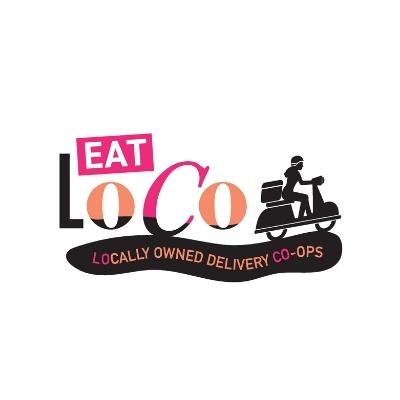Wed, 01/26/2022
As part of its work highlighting innovators in the dynamic tech sector here in Nebraska and the region more broadly, the Nebraska Governance and Technology Center is reaching out to local tech leaders to ask them a few questions about their work, how they got started, and where they see their company headed in the future. Today we are featuring Clay Seaman and his company LoCo, an Omaha-based food delivery co-op that is collectively owned by independent restaurant owners.
Tell us a little about LoCo and the work that you do.
LoCo believes in creating a fair and sustainable alternative to the companies that are currently setting the tone of food delivery nationwide. We believe that restaurant owners themselves should be the decision-makers for how their food is delivered, and that they should also be charged commission rates that are fair—unlike the current national rates, which are way above most independent restaurants’ margins. Lastly, LoCo believes that food delivery is an extension of the onsite service restaurants provide. When delivery is handled by an off-site, third-party company, customer service suffers. LoCo focuses on providing a quality customer experience and aims for total customer satisfaction, just as any restaurant would.
What led you to found LoCo?
LoCo Co-ops was created by Jon Sewell, a restaurant owner in Iowa City, Iowa. Sewell started a delivery co-operative when the behemoth online and mobile food-ordering company GrubHub bought out the OrderUp! service that had been operating in Iowa City and proposed to double the commission rates it charged local restaurants. The rate hike would deal a harsh blow to restaurants in Iowa City, and rumors held that some may even have to close their doors in response. Seeing an opportunity to help, Sewell set up a model familiar to him from his background as a healthcare executive: a business owned by a collaborative group of the main stakeholders, the way hospitals shared mobile MRI machines.
How did you develop the concept?
Sewell approached other restaurant proprietors in town to become co-owners of what became the city’s first delivery co-op. After refining the concept with the launch of a second delivery co-op in Fort Collins, Colorado, Sewell founded LoCo Co-ops to share this locally owned model with communities of restaurant owners across the United States and internationally.
What issues are you engaged with at the moment?
Small businesses, whether they’re restaurants or retail, have been struggling and we need to help. Here in Douglas County there are still funds from the Cares Act that haven’t been allocated, so we’ve been sitting down with County Commissioners to see how that money can be allocated to small business owners that need it most. So we would encourage people to reach out to their Commissioners; more information on small business relief can be found at this link.
A second major issue that businesses are facing is staffing. When the pandemic happened, a lot of people in the service industry found different jobs. My brother-in-law just came back from Columbia, Missouri and he sent me a photo of a McDonalds with a hiring sign offering $22 an hour. Local restaurants can’t afford to pay $22 an hour, so that’s a big challenge for them. That’s why you are seeing places that aren’t staying open as long, or are closing on certain days, because they just can’t find enough help.
Where do you see LoCo heading over the next five to ten years?
Right now we’re partnering with a company that does menus for restaurants, working together to develop and refine our own online food delivery platform. Having a software developer as a partner is a major advantage because we are directly in contact with the developers so if an issue comes up, they can address it quickly.
Over the next few years we’re also going to be expanding into a number of other cities; we’re already in Las Vegas, Richmond, Knoxville. So over the next few years we’re going to have hundreds of restaurants and we’re going to be all over. Omaha has been sort of a Guinea Pig for trying out a lot of these models, and the more restaurants you have in a city the more of a voice you have. That’s a game changer.
